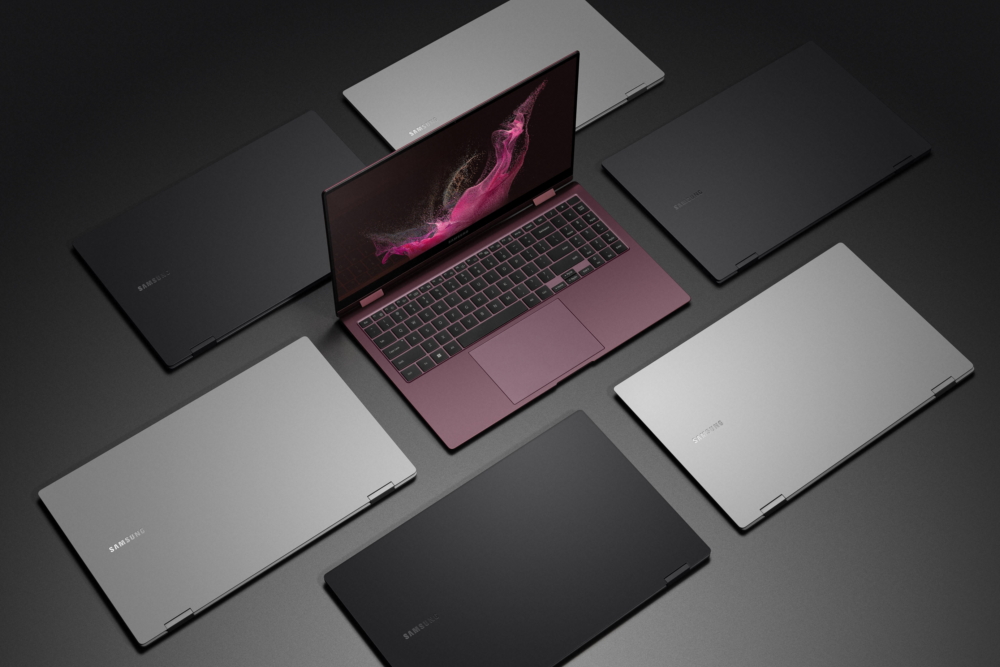Samsung's Galaxy Book2 Pro is powered by Intel Arc graphics
This could be one of the first laptops we're seeing with the new P and U series of chips and Arc graphics.

With all the news swirling around since CES and Intel’s own reports, we can expect plenty of big things from the tech giant in 2022. The company promises to ship more than 4 million discrete GPUs this year, but we’re hoping to at least see that missing day 0 driver for Elden Ring first. Today, we got a look at some of Intel’s smaller innovations, which look to be powering the new Samsung Galaxy Book2 Pro series.
Intel has been spruiking its new line up of well received 12th gen chips for a while, with the beefy H series doing good work in gaming laptops. The Evo series of Intel powered laptops pairs the company’s CPU efforts with GPU power to create some pretty excellent looking lightweight units. Only recently Intel gave us a look at the mobile oriented P and U series of Alder Lake chips, which come in over 20 different variations. Reportedly these have already been implemented in over 250 device designs, and it’s very likely these Samsung Galaxy Book2 Pros could be among the first.

Best CPU for gaming: the top chips from Intel and AMD
Best graphics card: your perfect pixel-pusher awaits
Best SSD for gaming: get into the game ahead of the rest
The press release for Samsung’s new line up of thin Windows 11 laptops lists i7 and i5 12th Gen Intel Core processors for both the Galaxy Book2 Pro and Galaxy Book2 Pro 360. It also states that it’s using the latest 12th Gen Intel processors. While this doesn’t necessarily totally confirm they’ll be the new P or U series of Alder Lake mobile chips as opposed to the H, it seems likely, especially given the size of these devices.
These will also be working in tandem with new Intel graphics cards. While the lower end units look like they’ll be running Intel Iris Xe graphics, Intel Arc looks like it will be an option on at least one of the Galaxy Book2 Pro.
These devices clearly aren’t aimed at gaming. Most of the sales pitch talks about features for zoom calls like Auto Framing, and bi-directional AI noise cancelling speakers so it’s clearly positioned as a trendy productivity device. However, some of these specs, including the option for 32 GB of DDR5 and up to a 1 TB SSD, definitely have me curious to see how it goes as a portable gaming device. With the recent launch of the Steam Deck, this could be the year of ultra portable PC gaming.
Keep up to date with the most important stories and the best deals, as picked by the PC Gamer team.

Hope’s been writing about games for about a decade, starting out way back when on the Australian Nintendo fan site Vooks.net. Since then, she’s talked far too much about games and tech for publications such as Techlife, Byteside, IGN, and GameSpot. Of course there’s also here at PC Gamer, where she gets to indulge her inner hardware nerd with news and reviews. You can usually find Hope fawning over some art, tech, or likely a wonderful combination of them both and where relevant she’ll share them with you here. When she’s not writing about the amazing creations of others, she’s working on what she hopes will one day be her own. You can find her fictional chill out ambient far future sci-fi radio show/album/listening experience podcast right here. No, she’s not kidding.

